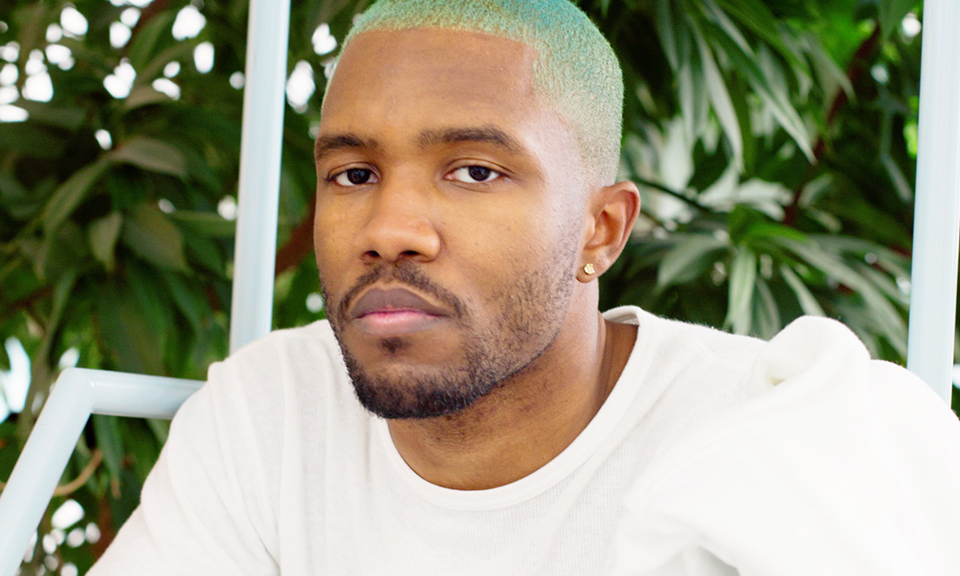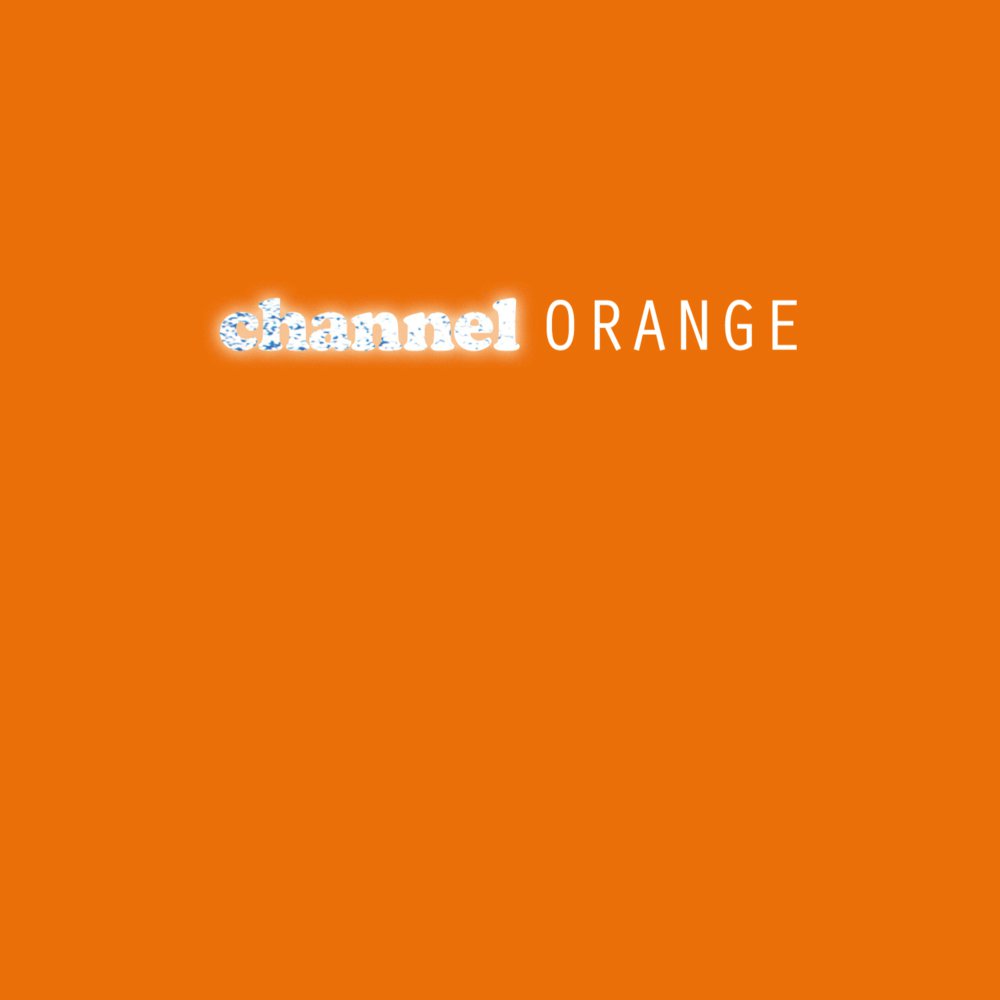July is a widely-celebrated month across the globe; America celebrates independence, Ireland remembers the Battle of Boyne and children celebrate six weeks of scholastic freedom. Here at Fortitude, however, we’re celebrating the fifth anniversary of Frank Ocean’s debut album, Channel Orange. A record that took an anonymous ghostwriter-turned-go-to-hook-man into a global, almost overnight sensation. Our second Record Sleeve’ article takes a look at an album that represents a journey of startlingly dark and labyrinthine emotions that quickly crept its way into many of the year’s ‘Best Of’ lists in 2012, and rightly so, reaching the apex.
Frank Ocean’s first release, which came in the shape of a riveting mixtape titled Nostalgia, Ultra, had already proven that among the Odd Future collective, there was a star of unparalleled wisdom and ability. A propitious start, particularly within its narrative reach – Ocean played puppeteer to the characters that starred in his romantic laments with superior skill. The singles ‘Swim Good’ told the despairing tale of an anguished murder-suicide, while ‘Novocane’ was the drug-addled soundtrack of an indie film love story. A collection of unique perspectives awash in sepia tones and opiated anti-romantic textures, it was disconcertingly fresh, slick, sophisticated and intelligent; especially when held in comparison to the mucky, slap-and-tickle hip-hop songs entering the fold from fellow Odd Future artists, like Earl Sweatshirt and Hodgy.

One year later, Ocean released Channel Orange which, to the surprise of many, far surpassed both Nostalgia, Ultra and the current and future releases of Ocean’s Odd Future colleagues, among whom was the ever-eccentric rapper Tyler, The Creator. The album represented a confounding achievement of heterogeneity and gold-dust scope — a decadent portfolio that builds upon the titanium foundations that Nostalgia, Ultra had paved and brings that vision to fruition. Continually deserving to be received as such, Channel Orange stands as a prime example of a long-player in an era of cherry-picked tracks.
Ocean’s prime collaborator Malay revealed in an interview that there were few leftovers from the recording sessions, which lends suggestion to the precision involved. Though not so much evocative or derivative as it is innovative, determined and striking, the direct inspirations for the album were 70’s psychedelic acts. The caustic ‘Pyramids’, for example, is a 10-minute recline of cosmic funk that turns ancient Egypt into a strip club, and Cleopatra into a weary dancer. Ocean is a pitiful procurer, a scorned sovereign and isolated beau. It constructs a bridge between an upbeat electro hit and a sleek, slinking slow jam. Astonishingly, all of these divergent strands sound rigid and together. Perhaps most importantly, ‘Pyramids’ is a prime example of Ocean’s ear for experimentalism and scope, throwing his music into genres that are otherwise left untouched by his fellow Odd Future compatriots.
But if ‘Pyramids’ impresses with its scope across genres and sounds, then its reach in lyricism is equally staggering. Ocean has sharpened his skill for cinematic stories, telling complex, visual tales through a number of narrative devices and characters. Channel Orange is bookended by a pair of love stories; the beautifully uncertain ‘Thinkin’ Bout You’ and the fond conduit-farewell of ‘Forrest Gump’, both of which are addressed to a man. In an ideal world, this would have no significance, but working in the hip hop community, highly known for it’s hyper-masculine demeanour and homophobic tendencies, Ocean’s candid lyrics were, and remain, ground-breaking. Ocean’s decision to come out as gay felt like a sign-post moment in the history of hip-hop and R&B. Given Ocean’s emotional state at the time of recording Channel Orange – he admitted that he “cried like a fucking baby” the day that he came out — the album struck the perfect, teetering balance of deeply personal and emotionally relatable. On his follow-up record Blonde, Ocean quests at redefining pop queerness and R&B eccentricity. Without its predecessor, his visions would crumble at the foundations.
“The album is observational of its time and trends as Ocean takes aim at LA’s rich kids, devoured by an empty haze of privilege”
The ambiguous use of “you” served no purpose in Ocean’s vision in ‘Think’ Bout You’. “My eyes don’t shed tears, but boy they pour, when I’m thinkin’ bout you,” he croons, keeping the track open-ended. In reality, Ocean knows exactly who he is addressing, and all that the critics and his fans can do is speculate. Likewise, on ‘Forrest Gump’ he sings the praises of his anonymous lover, describing him as “so buff and so strong,” before capturing the disarming innocence of feelings of new love, as he simply quips “Forrest Gump you run my mind boy.” ‘Bad Religion’, the string-soaked summit of his amorous turmoil, sees him crying “I could never make him love me” to a taxi driver who can only offer the deficient salve of God.

There is more bubbling beneath the series of exquisite diary entries, however. The album is observational of its time and trends as Ocean takes aim at LA’s rich kids, devoured by an empty haze of privilege. His sharp wit displays a duality on ‘Sweet Life’, while reciting “Why see the world when you got the beach?”, Ocean’s demeanour is both viciously sarcastic and resignedly dejected. ‘Super Rich Kids’ fuses a decided metaphor for the global economy with a tale of cold-blooded superfluity, topped off with a shock death: “Some don’t end the way they should / This silver spoon has fed me good.”
This inimitability — the potion of vocal prowess, lyrical ambition, and vivid versatility that makes Ocean a distinct artist — is only amplified by his ability to go into hiding between releases. If you enjoy the album and want to hear more, you can’t just turn on the radio for pale approximations. Thematically,Channel Orange is almost cinematic in its lyrical breadth. Each story ends unexpectedly; each character becomes richer as the album progresses.
A lot of modern R&B and rap music brims with complex storytelling, and as such, critics have a propensity for remaining ignorant of it, but Channel Orange strips the bravado to the bone and does it without effort. In a world of tailor-made superstars, Frank Ocean proves himself a dynamic songwriter, a genuine voice and a true original. The victories that this album has achieved have all been well-earned.

